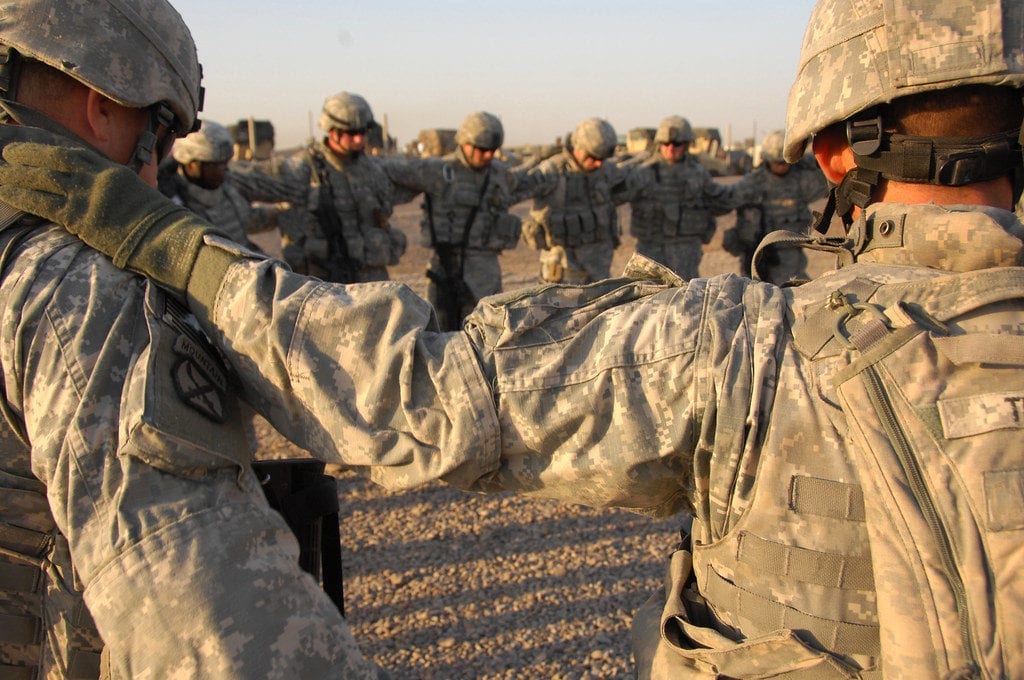“So Peter was kept in the prison, but prayer for him was being made fervently by the church to God” (Acts 12:5).
I’ve had many questions about this biblical passage. It makes me wonder, “How should we pray?”
The setting for this verse is in Jerusalem. The year is AD 42, about twelve years after Jesus rose from the dead and ascended into heaven. James the apostle had just been put to death by King Herod Agrippa I. This was a terrible shock to the church. James was one of Jesus’ inner circle of apostles—along with Peter and John. Yet, although James’ death was a tremendous blow to the church in Jerusalem, it won the King favor with the general population. So, when the King realized that killing apostles scored him political points, he proceeded to arrest the foremost of the apostles, Peter.
Now King Herod took every precaution to make sure Peter stayed in prison. The apostles had a reputation for making miraculous escapes from jail and the King wasn’t about to let Peter slip through his fingers. So Herod assigned four squads of soldiers to guard Peter. But while Peter awaited execution in jail, the church prayed fervently for Him.
Praying For What?
But what specifically was the church praying for? Were they praying for his release and deliverance from death? Or, were the Christian believers praying for God to sustain and strengthen Peter that he might be a faithful witness for Christ in his death? That’s a possibility. They knew Peter previously denied the Lord under fire. And consider how the apostles prayed when they were threatened by the Sanhedrin in Acts 4. They did not pray for deliverance from persecution. The apostles prayed for boldness in the face of persecution (Acts 4:23–31).

Yet, why does the text here in Acts 12 go to the trouble of saying that the church prayed fervently for Peter, but does not say it did so for James? Could the church have come to believe in the invulnerability of the apostles? And could the sudden death of James shocked them back to reality? Did James’ death alert them to the fact that, without God’s intervention, Peter would probably be killed? Could the church have concluded that it should have prayed fervently for James and did not want to repeat that omission again? Was the church coming to a new realization about prayer? Were believers coming to understand that they could not only pray for strength to accept and endure their circumstances? Were they also coming to realize that through their prayers they could actually shape those circumstances?
God’s Answer
In response to their prayers God sent His angel to deliver Peter from prison and give him many more years of fruitful service on earth. God used the prayers of His people to execute His purpose on the earth. Through their prayers, believers thwarted the schemes of the devil and overthrew the plans of a wicked king. Why else would Jesus command us to pray, “Thy kingdom come. Thy will be done on earth as it is in heaven”? Evidently Jesus intends to use our prayers to bring about His will and kingdom.
Our Prayers
You know, we can easily reason our way out of praying altogether. “If God wants such and such to happen, He can make it happen without my prayers or intervention.” I am convinced that this is not the proper Christian attitude. God shares with us His love and concern for unbelievers and burdens our hearts to pray for them and witness to them. God shares his love and concern for the fate of this nation and burdens our hearts to pray for America.
You say that you don’t feel that burden to pray? Then let me ask you this. Is your apathy from God? Is your lack of concern for the eternal fate of sinners one of the fruits of the Spirit? If all heaven rejoices when one sinner repents (Luke 15:7, 10), shouldn’t I be in tune with heaven? If God desires to save all people (1 Tim. 2:4), shouldn’t my feelings be similar to God’s?
In reality, my lack of zeal for God—or of any concern for people who are hell-bound—indicates something is missing within me. It’s indicative of the absence of God’s activity in my heart. We should never mistake apathy for “heavenly peace or godly contentment.”
Therefore, pray as Christ commanded us. Opportunity to do something may elude us. We may seem powerless to change circumstances for the good. But we can always pray for God to do what we cannot. In fact, God often uses our human helplessness to drive us to pray. So pray for one another. Pray for our unsaved loved ones. Pray for our nation. And pray for persecuted believers. Pray that God’s kingdom will come and that His will shall be done on earth, as it is in heaven (Matt. 6:10). God is using our prayers to perform His will. Truly, God’s people can rule the world through their prayers.
PRAYER:
Dear Father in heaven, please draw me into a deeper prayer life with You. Please share Your burden for humanity with me. May my heart be broken with the things that break Your heart, O God, and drive me to my knees in prayer. Amen.
In article photo: iraq by the U.S. Army licensed under CC BY 2.0







